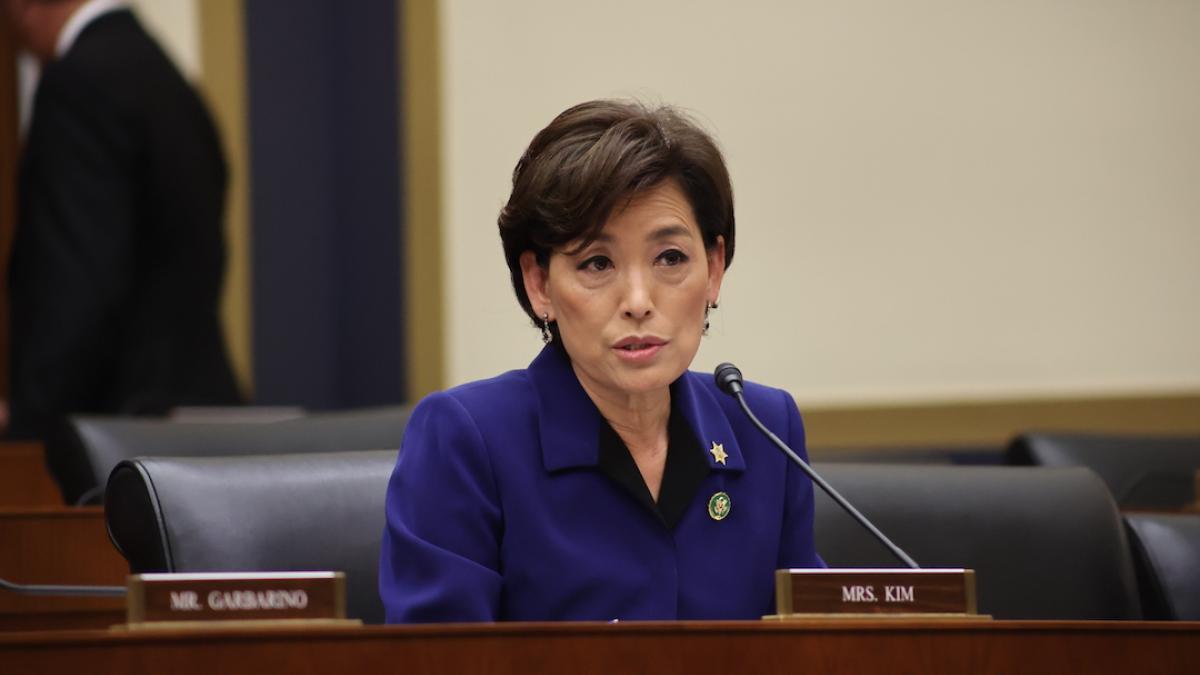Washington, DC – Today, House Indo-Pacific Subcommittee Chairwoman Young Kim (CA-40), House Foreign Affairs Committee Chairman Michael McCaul (TX-10), and House Select Committee on the Chinese Communist Party (CCP) Chairman Mike Gallagher (WI-08) led a letter to Secretary of State Antony Blinken and Secretary of Commerce Gina Raimondo expressing concerns following reports that the CCP demanded the U.S. to lift sanctions related to human rights abuses in the Xinjiang Uyghur Autonomous Region in order to reach a deal on countering Beijing’s counternarcotics operation.
These reports come after the Biden administration’s repeated trips to Beijing and lack of cooperation and transparency with Congress.
Reps. Andy Barr (KY-06), Dan Newhouse (WA-04), Amata Radewagen (AS-At Large), Mike Waltz (FL-06), Rob Wittman (VA-01), Neal Dunn (FL-02), John Moolenaar (MI-02), Chris Smith (NJ-04), Brian Mast (FL-21), Darrell Issa (CA-48), Tom Kean (NJ-07), Cory Mills (FL-07), Rich McCormick (GA-06), and Bill Huizenga (MI-04) joined the letter.
Read the full letter HERE and highlights below.
We write to express our deep concern with recent reporting that the Chinese Communist Party (CCP) may only restart counternarcotics cooperation with the United States if we lift sanctions on the Ministry of Public Security’s Institute of Forensic Science.
On July 24, the Wall Street Journal reported that Chinese officials said the “U.S. must first remove the sanctions on the police institute [the Ministry of Public Security’s Institute of Forensic Science] as a precondition for restarting joint counternarcotics works.” China’s Ministry of Public Security’s (MPS) Institute of Forensic Science was added to the Department of Commerce’s Entity List on June 5, 2020, for engaging in human rights violations and abuses in the Xinjiang Uighur Autonomous Region (XUAR). This demonstrates the CCP’s continued efforts to link unrelated issues as a negotiation tactic and to leverage diplomatic engagement as a reward for CCP-perceived “good behavior.”
The CCP is using American lives as a bargaining chip to achieve sanctions relief for its human rights abuses. According to the Center for Disease Control, more than 105,000 Americans died of drug overdoses, with 66 percent of those deaths related to synthetic opioids including fentanyl in the 12-month period ending in October 2021. Further, fentanyl overdoses are a leading cause of death for Americans aged 18-45. According to the Drug Enforcement Agency, the People’s Republic of China (PRC) remains the primary source of fentanyl-related substances trafficked into the United States.
We are also concerned about the Department of State’s lack of candor regarding recent engagements with the PRC, especially considering that we are learning more about these engagements from public reporting than we are from the Administration directly. Despite appearing before the House Foreign Affairs Committee and China Select Committee, Assistant Secretary (A/S) Kritenbrink refused to answer questions forthrightly about competitive actions State is or is not taking against the PRC and core issues in our foreign policy towards the PRC, such as American citizens detained in the PRC or issues related to Taiwan. Instead, A/S Kritenbrink, and other Biden Administration officials have emphasized the importance of engagement and future meetings—which are predominately occurring in the PRC—with CCP officials as success itself.
As we expected, we have not seen any concrete or tangible deliverables from meetings with the CCP. Key elements of our ability to conduct risk management, such as military-to-military communications have decreased recently and we still have no deliverables on the fentanyl crisis, which has worsened under this Administration. We are therefore concerned that the Biden Administration continues unproductive meetings with the PRC while not producing any results.
This unrestrained willingness to engage does not move our objectives forward and plays into CCP efforts. We must be careful not to compromise on our values of basic human rights in exchange for empty promises, which would be a negation of President Biden’s very own statement that “human rights will be the center of our foreign policy.”
Given that most of the precursors from fentanyl originate in the PRC, the PRC has an obligation to cooperate with the United States on counternarcotics work without preconditions. Furthermore, the PRC is bound by international law to cooperate with the international community to stop the flow of outbound fentanyl precursors to North America. In March of 2022, the UN Commission on Narcotic Drugs, at the recommendation of the United States, voted to control three precursors used by traffickers to produce fentanyl.
Given how many of our constituents have died from fentanyl overdoses, we expect the Administration to regularly engage our offices on efforts it is taking to hold the PRC accountable to these obligations. We do not support lifting export controls or sanctions as a condition for cooperation with the PRC, and we are considering legislation to ensure the Administration cannot circumvent Congress.




